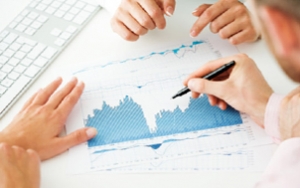Bulgaria's economy will grow in 2016 more slowly than it did in 2015, but will pick up next year, the European Commission estimates.
It also says domestic demand is expected to increase and replace net exports as the main growth driver in 2017.
Separately, exports will grow faster than imports supported by higher demand from the EU and exporting industries will benefit from the weaker euro, the Commission says in its annual spring forecast [PDF], but warns "geopolitical uncertainties and weak import demand of the main trading partners" could pose a downside risk.
GDP will increase by 2% this year and 2.4% in 2017, after having grown 3% last year and just 1.5% in 2014.
While last year's increase of 3% was "driven mainly by exports and falling oil prices," the slowdown in 2016 will be caused by the weakening of "some boost factors, such as the absorption of EU funds", the forecast reads.
A recovery will begin in 2017 as "strengthening domestic demand more than offsets fading net exports".
Inflation in 2016 is expected to be a negative 0.7%, compared to -1.1% last year, and a positive 0.9% in 2017.
EU Commission figures suggest employment will continue to go steadily down, reaching 8.6% this year and further lowered in 2016 to 8%.
It was 11.4% in 2014, according to Commission data, and fell to 9.2% last year.
However, Eurostat data suggests it fell below the 10% mark early this year.
Labor market conditions are improving with the recovery in domestic demand, but a rediction in unemployment is also drived by emigration and aging of the population.
Public debt is expected to grow steadily as a percentage of GDP, reaching 28.1% this year and 28.7% next one.
The EU Commission also forecast a shrinkage in the budget deficit which was 2.1% of GDP for 2015 and will amount to 2% and 1.6% for 2016 and 2017 respectively.






